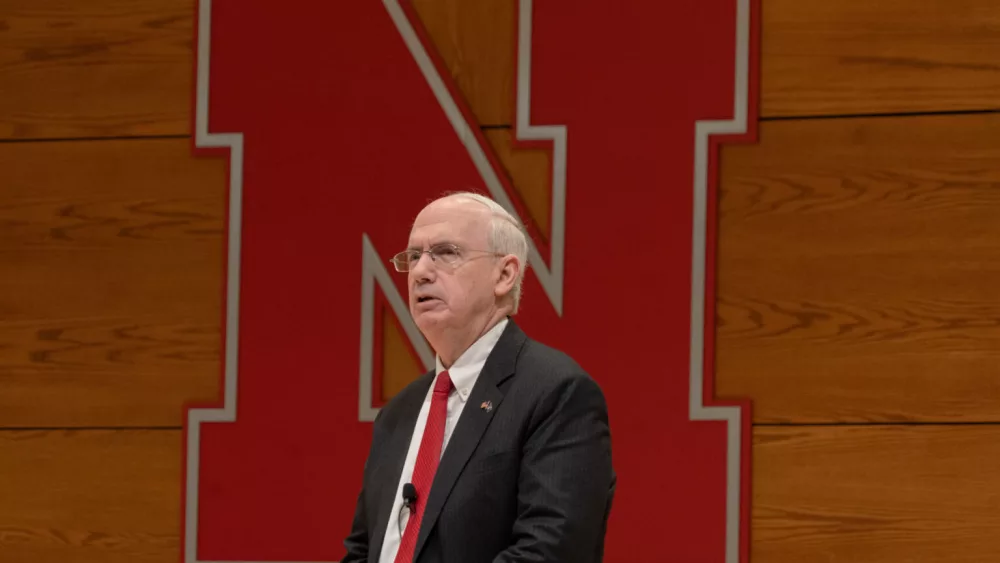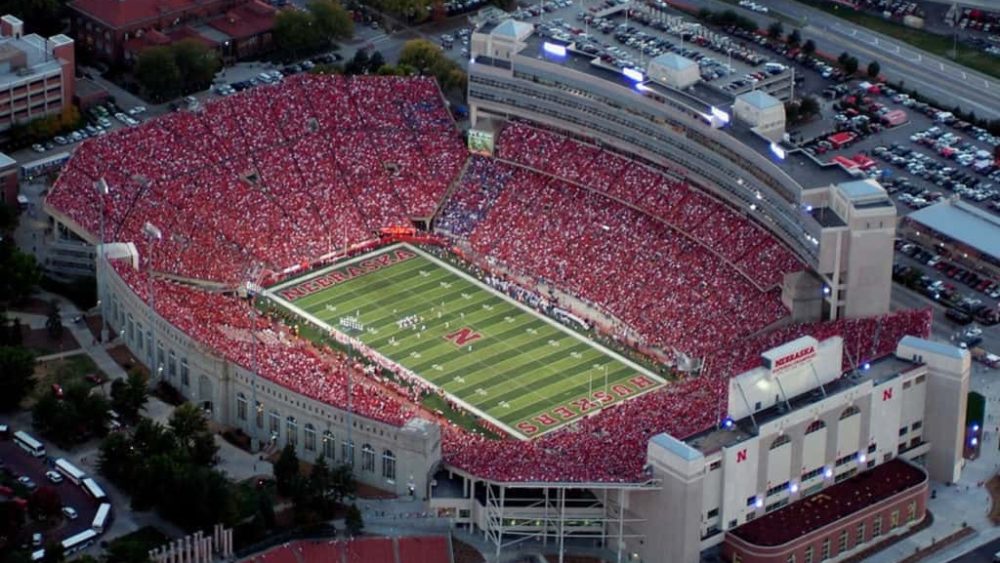
Measures intended to attract and retain teachers, improve student access to mental and behavioral health services and prepare students for technology-related jobs were among those advanced by the Education Committee this session.
Teacher certification, loan assistance
Lawmakers voted 46-0 to pass a bill intended to address a shortage of teachers in Nebraska schools.
LB1218, introduced by the committee, provides an additional $1,000 in loan forgiveness to qualifying student teachers under the Attracting Excellence to Teaching Program.
The bill also allows a teacher from another state to demonstrate eligibility for a Nebraska teaching certificate or permit if they possess a similar certificate or permit in that state.
Additionally, the State Board of Education now must authorize the issuance of a permit or certificate to an applicant who has been offered employment to teach, administer or provide special services by a public, private, denominational or parochial school in Nebraska.
Under the bill’s provisions, the board may not require a statewide examination as an entrance requirement related to basic skills competency when approving Nebraska teacher education programs.
LB1218 also contains provisions of LB945, introduced by Sen. Lou Ann Linehan of Elkhorn, which authorize the state Department of Education to provide qualifying teachers $5,000 per year in loan repayment assistance for up to five years.
To qualify, an individual must be a Nebraska resident teaching full time at a public or private school or performing dual-credit instructional duties for public or private school students while employed full time at a public or private nonprofit college or university in Nebraska.
The total amount of loan repayment assistance may not exceed $5 million in any fiscal year.
Mental and behavioral health
LB852, introduced by Omaha Sen. Jen Day and passed on a vote of 36-10, requires each school district to designate at least one employee in each school building to coordinate access to behavioral health services for students and families.
The bill requires the state Department of Education to provide each district with a registry of state and local behavioral health resources for students and families by geographic area. It also requires the registry to be updated at least annually and include both school-based services and those accessible outside of school.
Each district will report its designated behavioral health points of contact to the department before the beginning of each school year.
LB852 includes provisions of LB912, introduced by Sen. Adam Morfeld of Lincoln. They require the department to create a mental health first aid training program for teachers and other school personnel employed by a school district or educational service unit participating in a State Board of Education grant program.
Teachers and other school personnel will learn how to safely de-escalate crisis situations, recognize the signs and symptoms of mental illness and refer a student to mental health services in the early stages of the development of a mental disorder.
A proposal to require children to be screened for autism spectrum disorder remained in committee.
Under LB997, also sponsored by Day, a physician, physician assistant, advanced practice registered nurse, school nurse, school psychiatrist or other trained individual could conduct the screening using an evidence-based tool appropriate to the age of the child.
Academic content standards
Nebraska students will receive computer science and technology education before graduating from high school under a bill the committee advanced this session.
LB1112, introduced by Omaha Sen. Terrell McKinney and passed 33-11, requires each Nebraska school district to include computer science and technology education in the instructional program of its elementary and middle schools beginning with school year 2024-25.
Additionally, it requires public school students to complete at least one five-credit high school course in computer science and technology prior to graduation beginning with school year 2026-27. Students may complete a one-semester high school course in computer science and technology to fulfill the requirement.
Districts may offer the course in a traditional classroom setting, a blended learning environment or an online-based or other technology-based format.
The State Board of Education will adopt measurable academic content standards for computer science and technology education under the mathematics, science or career and technical education standards.
Nebraska’s social studies education standards will be updated to include content on the Holocaust under a bill passed on a vote of 40-1.
LB888, introduced by Sen. Jen Day of Omaha, requires the State Board of Education to adopt academic content standards for education on the Holocaust and other acts of genocide as recognized by the U.S. Congress or the United Nations as of Jan. 1, 2022.
A bill intended to prevent the State Board of Education from creating health education standards for Nebraska public schools did not advance from committee.
LB768, introduced by Thurston Sen. Joni Albrecht, would have prohibited the board from developing, approving, distributing, adopting or promulgating academic content standards for subjects other than reading, writing, mathematics, science and social studies.
Other measures
Early childhood education programs are included in the Nebraska farm-to-school program under a bill passed on a 46-0 vote.
Lawmakers created the program in 2021 with passage of a bill sponsored by Sen. Tom Brandt of Plymouth that requires the state Department of Education to administer a program to help provide locally grown and minimally processed food to elementary and secondary school students in Nebraska.
LB758, introduced by Brandt this session, expands the law to include early childhood education programs licensed under the state’s Child Care Licensing Act.
An existing state scholarship program for postsecondary students enrolled in programs that lead to jobs in certain high-demand fields was codified in state law.
Under LB902, introduced by Sen. Raymond Aguilar of Grand Island and passed 48-0, students who achieve a minimum score on a standard college admission test and enroll in an eligible program of study at the University of Nebraska, Nebraska state colleges, community colleges or private postsecondary institutions will receive a Nebraska Career Scholarship.
The amount of each scholarship varies from $5,000 to $25,000 per year depending on the institution and will be renewed automatically each year if the recipient remains enrolled in good standing in the eligible program of study for which it was awarded.
To qualify for a scholarship, a student must be a first-time freshman or a transfer student. Scholarships may be used for tuition, fees, required tools and equipment, room and board.
Beginning in academic year 2024-25, the state Department of Economic Development, in collaboration with each institution’s governing body, will designate eligible programs of study based on periodic reviews of Nebraska’s workforce needs.
Finally, each institution’s governing body must submit an annual report on scholarship recipients and eligible programs of study to the Legislature and the governor.
A proposal to modify Nebraska’s school funding formula and direct additional state aid to public schools was held on general file.
Under LB890, introduced by Fremont Sen. Lynne Walz, each district would have received education stabilization base aid paid from a new trust fund. The bill also would have increased the allocation of state income taxes to school districts from the current 2.23 percent to 20 percent in 2023-24.
Additionally, LB890 would have decreased the local effort rate — a component of the school funding formula that uses property valuation to determine how much a district can contribute in property taxes to fund a school.
After several hours of debate over three days, Speaker Mike Hilgers of Lincoln placed a hold on LB890 at Walz’s request.
A proposed update to a state law requiring public schools to develop and adopt policies on parental involvement advanced from committee with amendments but was not scheduled for debate.
Under LB1158, as introduced by Bellevue Sen. Rita Sanders, a policy would have included how the district would provide parents and guardians access to digital and learning materials and training materials for teachers, administrators and staff as well as procedures for the review and approval of such materials and activities, among other information.
The bill also would have required each school district to make all district and school policies accessible by a prominent link on the school’s website and make a reasonable effort to make any learning materials available for public inspection upon request.
If the commissioner of education determined that a school district failed to comply with the bill’s requirements, the commissioner would have been required to direct that the district’s state aid be withheld.







